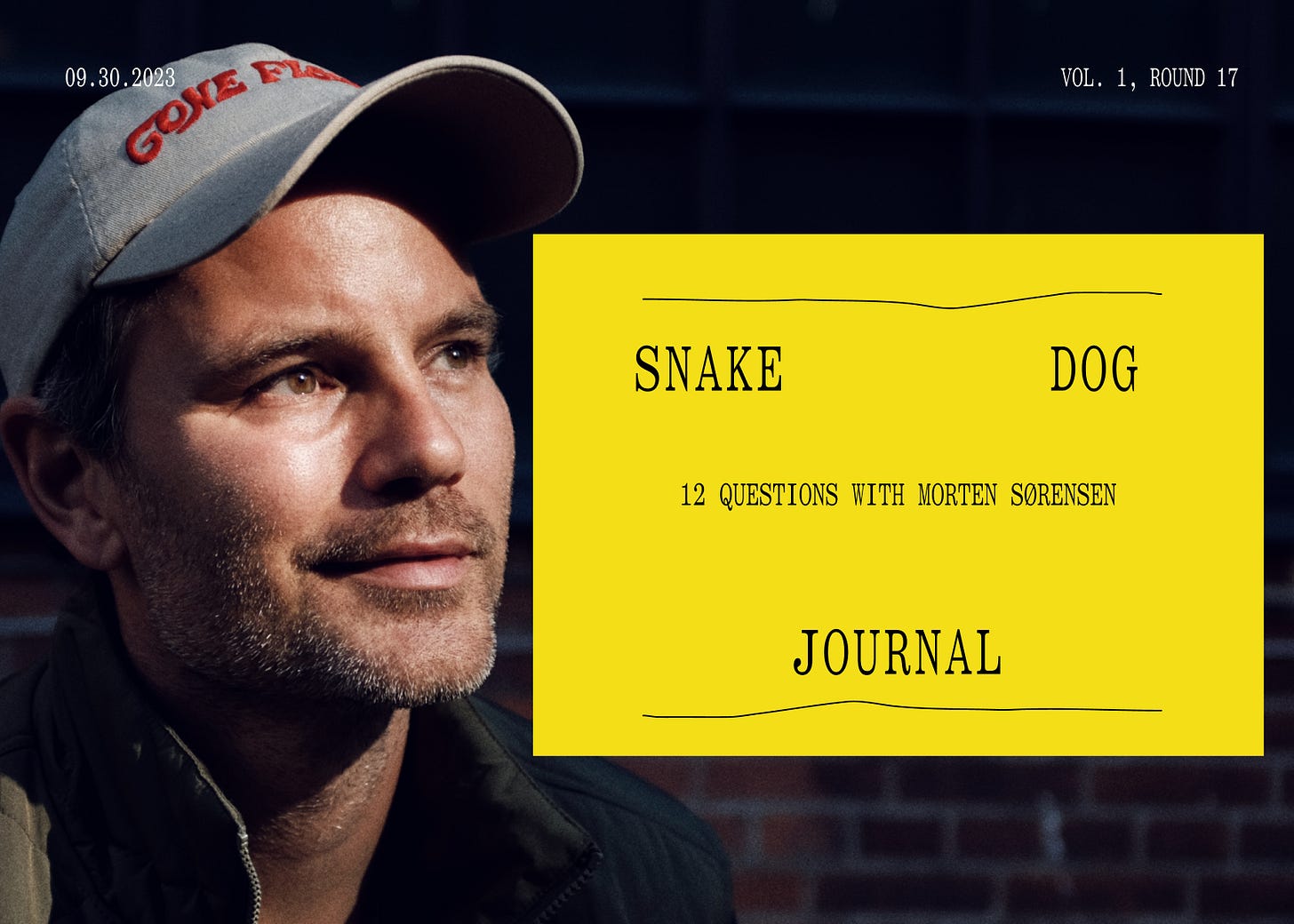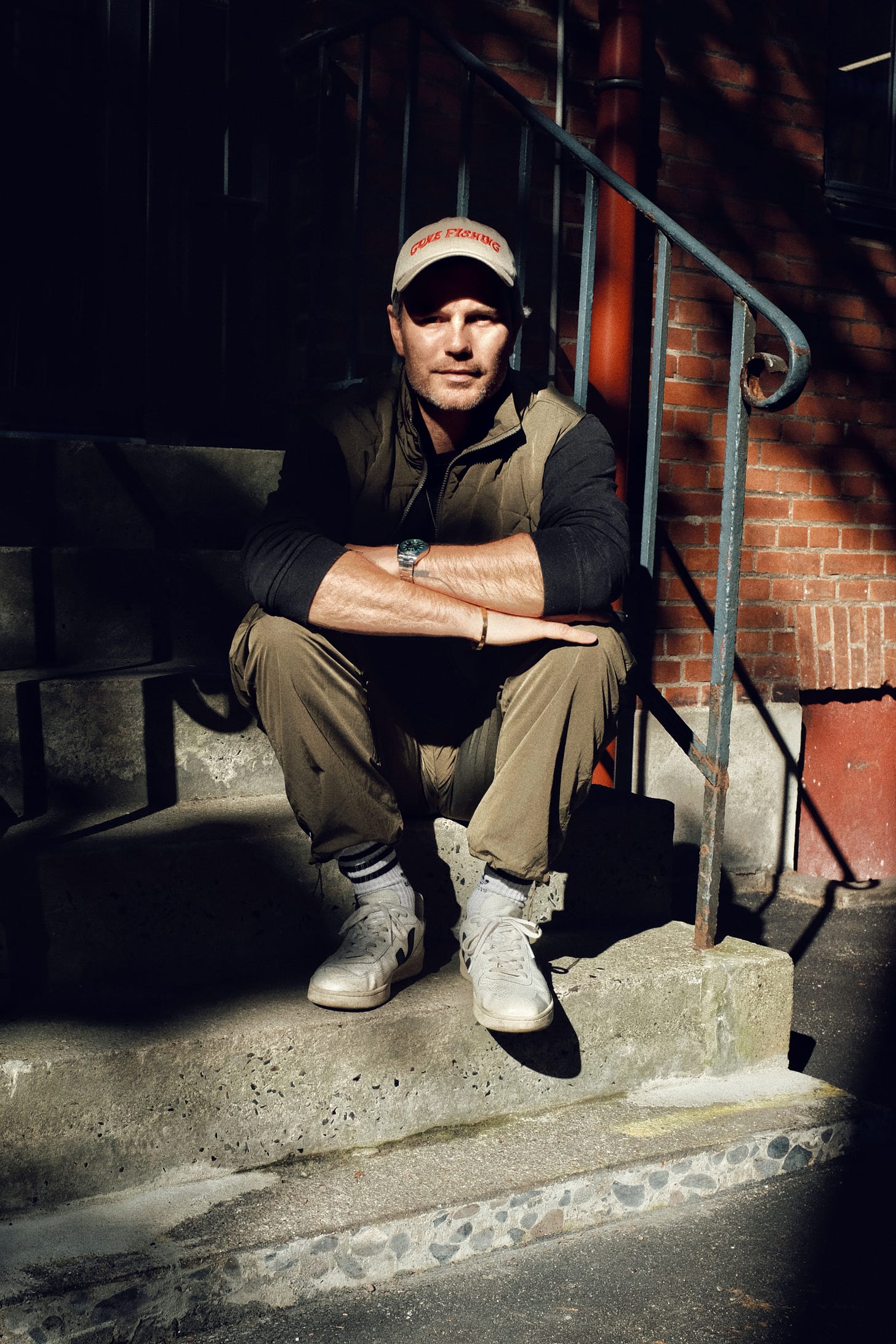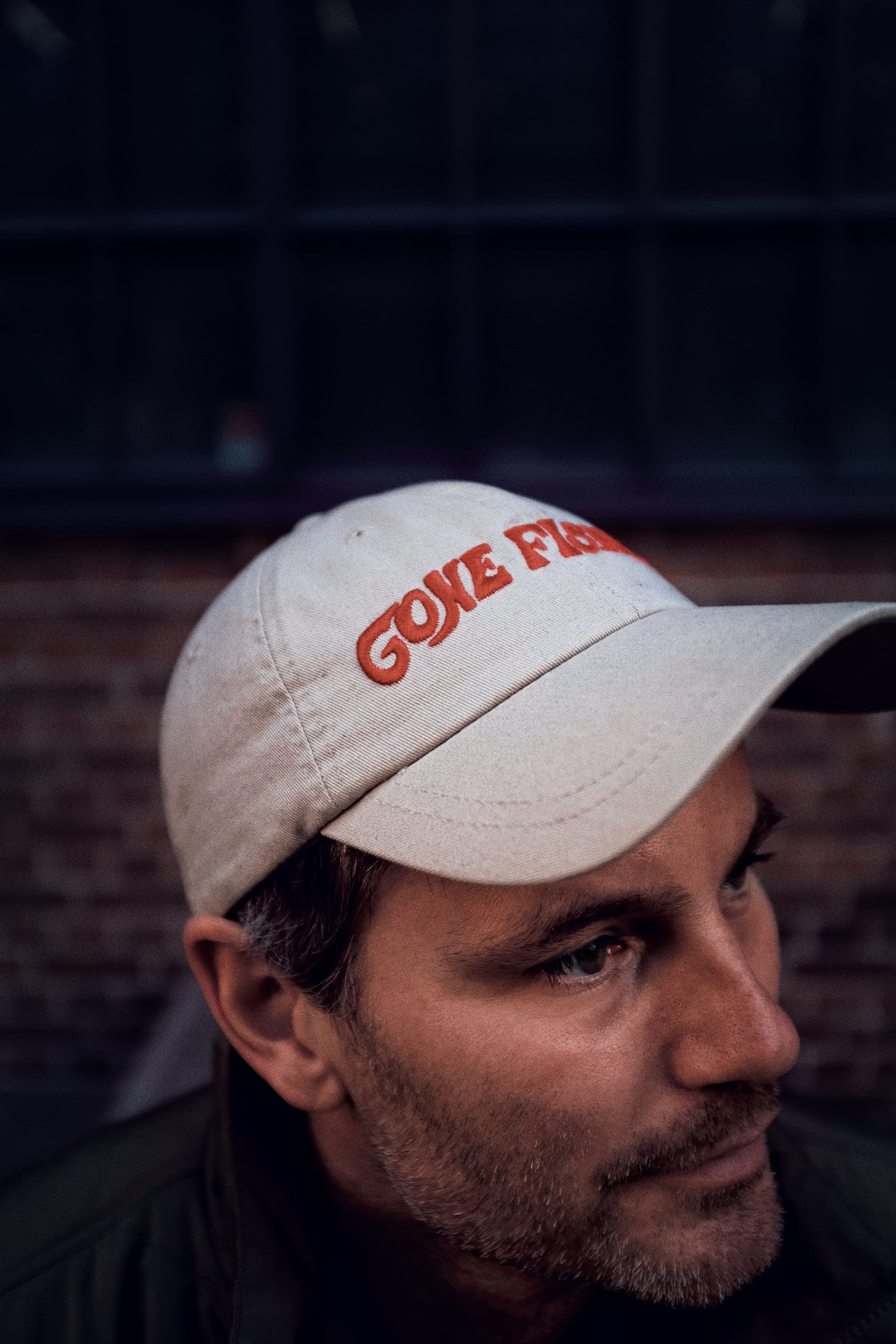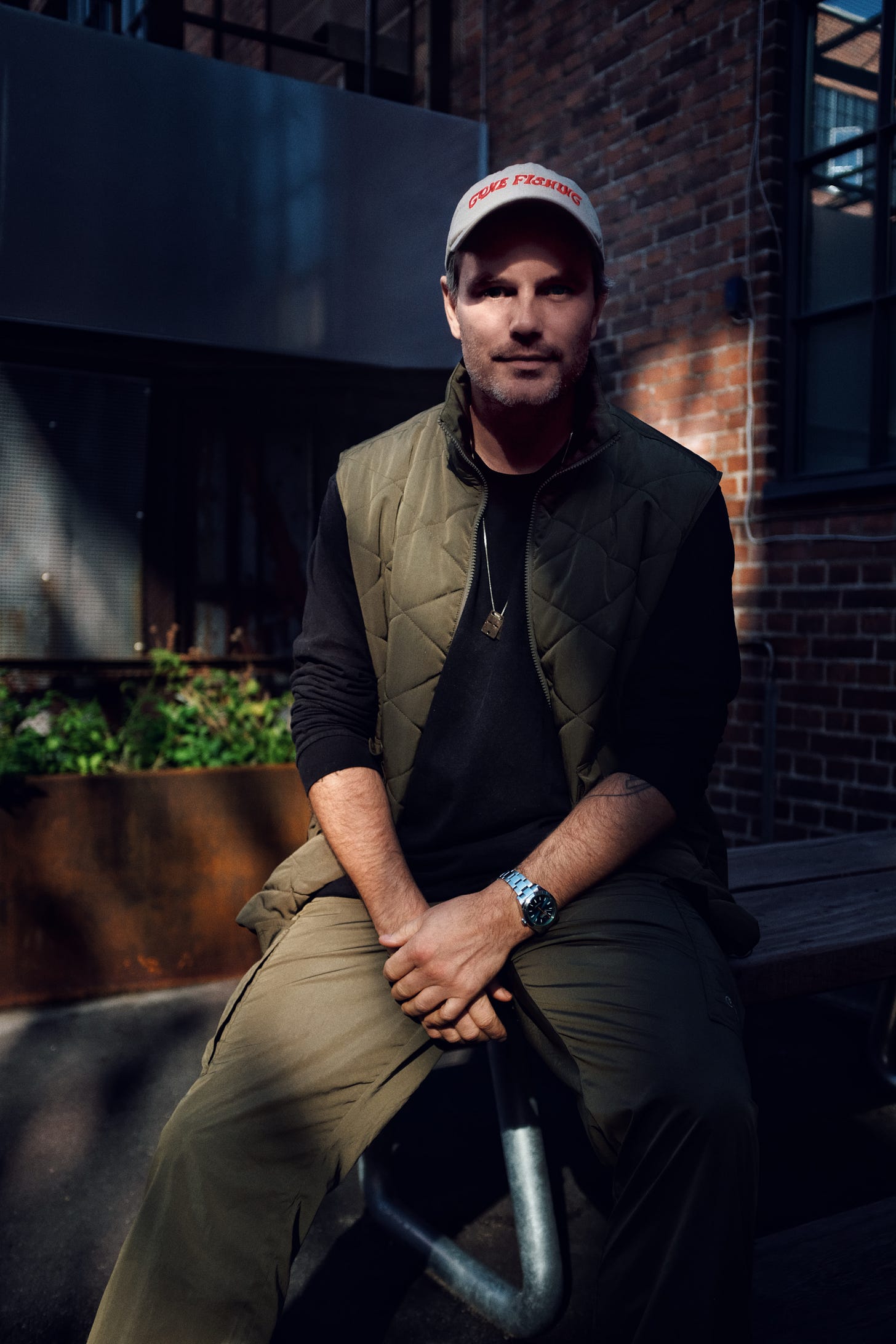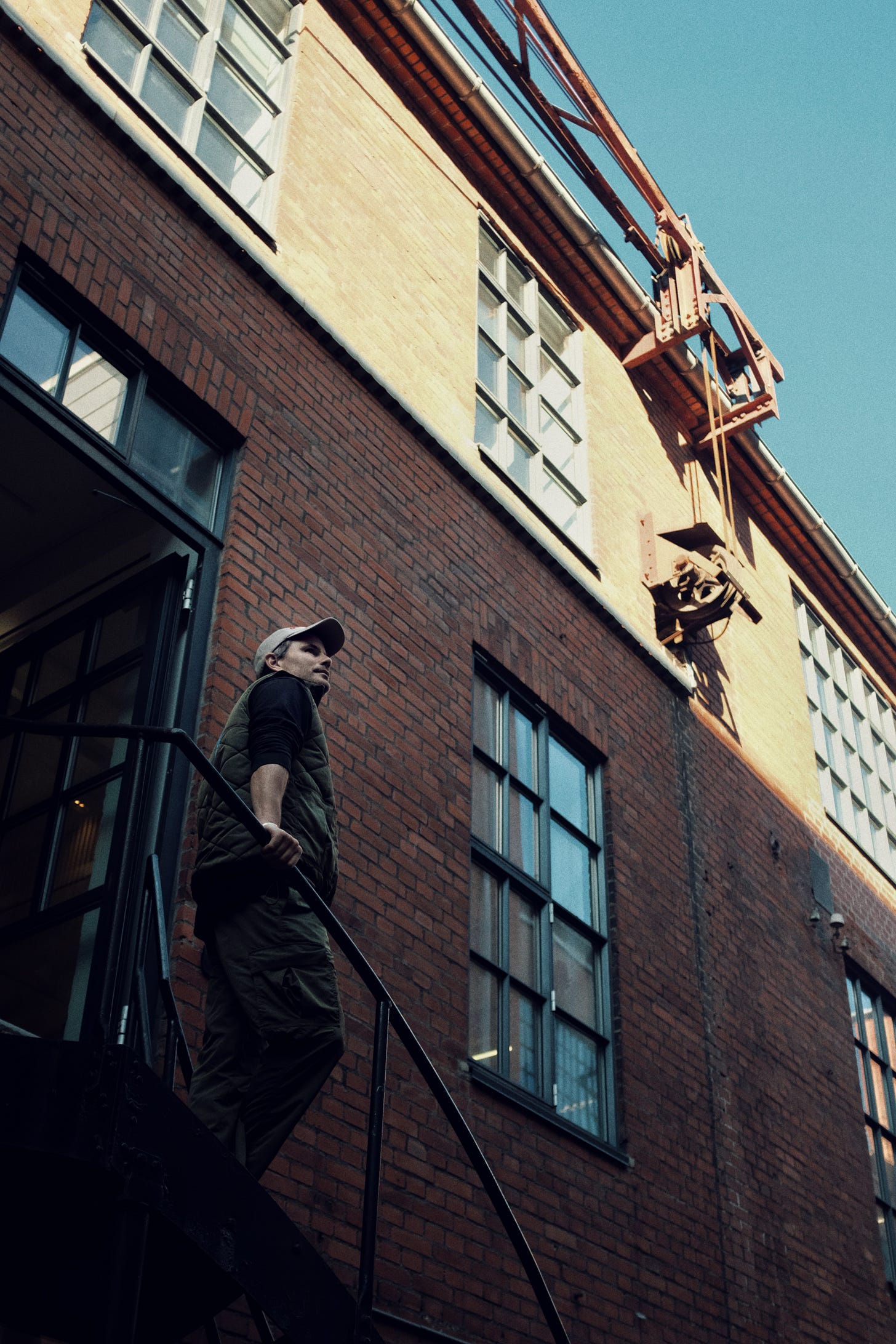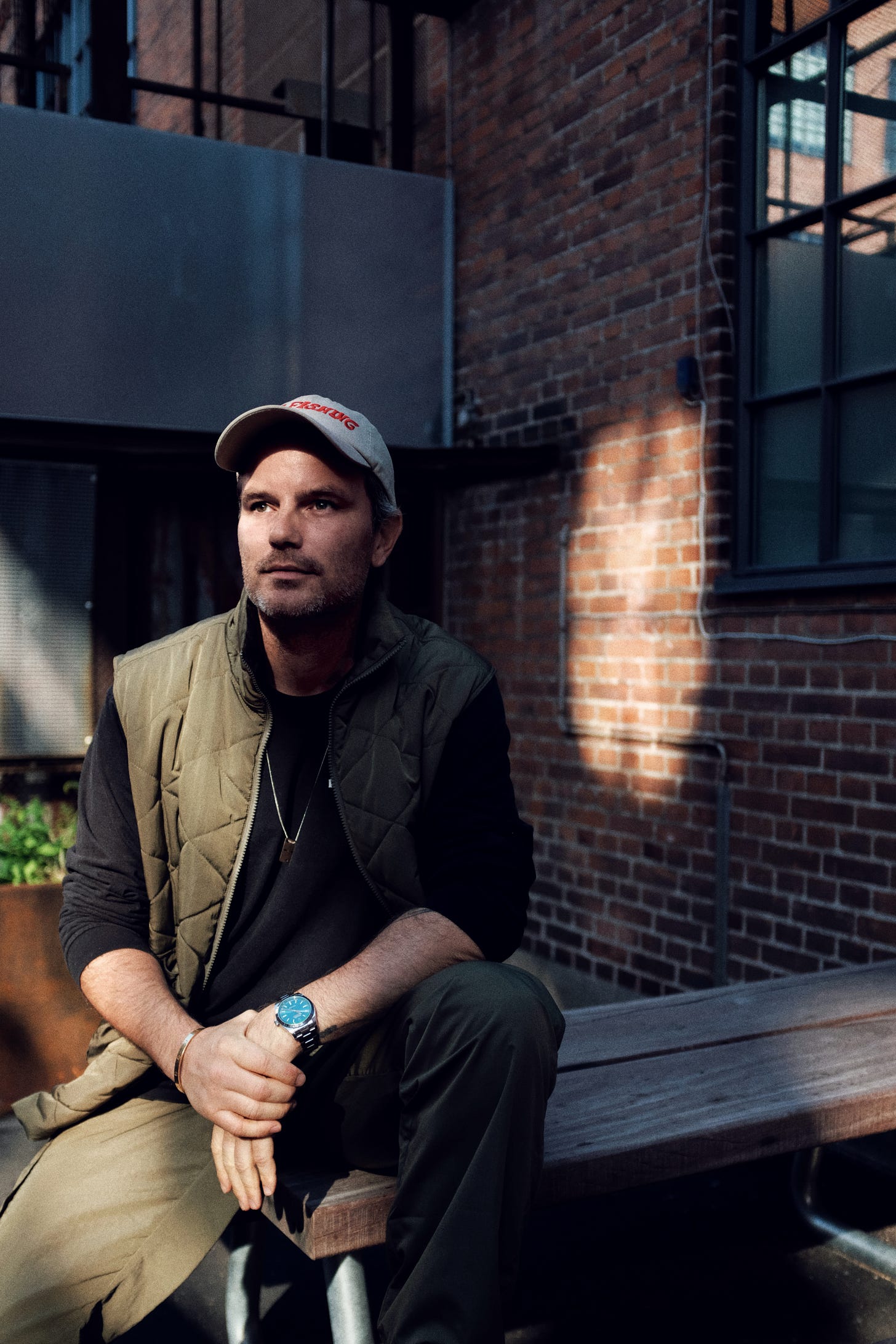GETTING SOBER-ISH
12 questions with ISH Spirits founder, Morten Sørensen
A lot of us look at sobriety like pregnancy. You can’t be just a little bit sober. If you have my enduring turnt tendencies, that’s true. “One is too many, a thousand is never enough.” But for others without the bug—which is roughly 90% of the general population—that’s far from the case. A lot of people don’t need to get sober. They just want to get sober-ish. And that’s where entrepreneurs like Morten Sørensen, founder of ISH Spirits, come in. Sørensen isn’t for no drinking. He’s for less drinking. Or, more drinking mindfully. And that requires choice, something there hasn’t been much of until recently when, seemingly overnight, the water wagon has a whole lot more on tap. From his headquarters in Copenhagen (where mindless drinking is ambient), Sørensen is creating non-alcoholic spirits so close to the real thing that he doesn’t recommend them to people in recovery. For those unconcerned with trigger warnings and open to placebo effects, Sørensen’s non-alcoholic spirits let you relive your inglorious days quite gloriously. No hangovers. No sloppiness. No shame spirals. Which together add up to something he thinks of as victory. If Sørensen’s mission is successful, we’re going to see less drunk people and more less-drunk people out there. That’s a win for them, for him, and for society as a whole. I talked with Sørensen about the human brain and the power of suggestion, the future of the NA beverage market, and how the dealcoholization trend leads to de-stigmatization for all of us who choose not to drink.
What is mindful drinking?
Alcohol is a substance that is essentially a mind-altering depressant. That needs to be handled with care. And it’s not handled with care in a lot of places. The general consensus is we just consume alcohol because everybody is doing it. We do it at a young age. We do it at an old age. Parents are doing it. Kids are doing it. Mindful drinking is just being mindful of how much alcohol you consume. That doesn’t mean that you don’t drink alcohol. It means you’re mindful about taking the top off the bottle.
What would you say to people who might say, “Mindful drinking? All drinking is mindless.”
I would challenge that. We are a consuming species. There’s different ways of eating. There’s different ways of drinking. It’s a very individual thing. But there are social aspects to it as well. For some people, having any alcohol is still too much alcohol. That part I concur with. Governments like Canada’s are saying, “There is no level of alcohol consumption that is good for you. Any ounce is negative.” There’s some truth to that because of the substance that it is and what it does to the body.
What’s been your experience “drinking mindfully” at events where other people are definitely doing quite the opposite?
When people around me get too affected by alcohol, I have more of an alert system. I have my eyes out for people. I feel like the responsible one. That’s not always what you want. At festivals, for example, people get so drunk. I’m like, “That’s not going to end well.” You see those things that you don’t really want to. At the same time, it’s also a tremendous victory. Going to a festival or a party where people are hammered and you just jump in your car after and drive home, you feel like a winner.
You don’t market your products to people in recovery. Why not?
We feel it’s dangerous ground. We have products that are so similar in taste to the alcoholic versions that we are concerned it might act as a trigger for people in recovery. So, we stay clear of it.
Can you talk a little about the science behind creating non-alcoholic beverages that taste like the real thing? How do you pull that off?
We start with the alcoholic beverage that we want to create a non-alcoholic version of. Take our rum, for example. We define what kind of tasting notes are in our benchmark rum. Rum gets its flavor profile from the spice casks it was stored in back in the day. We find those elements in nature. Vanilla. Nutmeg. Apple. Then we use three different techniques to extrude the flavors. Steam, where we capture the taste molecules. Classic extraction, like making a cup of coffee. And distillation. Then we take an alcoholic rum and de-alcoholize it. With that de-alcoholized base, we enrich it and build it back up with our different spices. Alcohol creates volatility in flavors. If you have a glass of water and a glass of vodka, it’s a very different sensation, even though they are both water-based. Ethanol makes the flavor explode. It evaporates and creates this warming and cooling sensation at the same time. To mimic that, we take chili seeds and we wash and distill them to create a subtle, warming heat. And we add that to the product to give it some lift. At this point, if you have a sip of an alcoholic rum and our non-alcoholic rum, there’s a difference. But if you mix a lime daiquiri or a Mai Tai or a dark ‘n’ stormy, you’re not really aware of that difference.
Can you talk a little about the effects of drinking a non-alcoholic cocktail versus an alcoholic one from a brain chemistry standpoint?
When you consume alcohol the body releases dopamine and serotonin. This is the happy drug. When you consume too much alcohol, you’ve basically had an over release of dopamine and serotonin. The days after, it becomes a depressant because you are deficient in those chemicals in the brain. With our products, we want to release some level of dopamine and serotonin. This is where the placebo effect comes in. The brain actually follows whatever the belief is. In one study, 55 participants were asked to consume four rum and cokes. They were tested before and after. One half was given alcoholic rum and the other half was given non-alcoholic rum. When asked afterwards if they felt more intoxicated after four rum and cokes, 52 out of the 55 said they felt more intoxicated. But only 25 of them had the alcoholic version. Another study showed that if they received an alcoholic version but were told it was an alcohol-free version, it was the other way around. About the same amount felt it was an alcohol-free version. But it was actually an alcoholic version. What happens in the brain is pretty much what you tell the brain. If you’re not drinking for the effect of the alcohol, the non-alcoholic version can actually compensate for a lot of that because you’re still releasing those chemicals in the brain.
What if you’d never had an alcoholic beverage?
It wouldn’t have the same effect. The brain wouldn’t be able to put those things together. 80% of our consumers also consume alcohol. I don’t think people who have never had alcohol would enjoy our cocktails very much. Alcohol is an acquired taste.
What do you think of the so-called “sober curious” movement?
I like that it puts a lot of light on choice. Within that community, there are authors, mixologists, producers, retailers. I think that movement is what’s creating the de-stigmatization of people who want to consume less or no alcohol. The more we read about it, the more touch points we have with it, the more of a topic it is, the less taboo it is.
What does the future of the non-alcoholic beverage market look like to you?
We’re going to see big legacy brands a whole lot more. All the Diageo brands. We’ll see non-alcoholic rums, gins, and tequilas from all the big box players. We’re going to see a bigger growth rate than alcohol. Not necessarily in volume anytime soon. But we’re going to see great growth numbers. We’re going to see more indie brands pop up. And we’re going to see a lot of broadness in the category, everything from functional to analog to low-alcohol versions of existing brands. What’s going to be the biggest denominator for the category is taste. We’re going to see a lot of exciting development in terms of taste, especially within wine. It’s going to follow in the footsteps of beer. Beer is the dominant category within NA now. We’re going to see a big effort to create non-alcoholic wine that satisfies as much for wine drinkers as non-alcoholic beer does for beer drinkers. Most importantly, we’re going to see the normalization of bars and restaurants always having great alcohol-free options on the menu. And, I think we’re going to see a big push for low-alcohol cocktails. The spirit-heavy cocktails like the Manhattan and the Old Fashioned are going to go out of style.
If you look at the science coming in these days, it seems any amount of alcohol is simply just bad for you. Do you think the alcohol industry will someday be looked upon with the same disdain as the tobacco industry? Should it be?
Yes. It’s very, very similar. If you look at the power the tobacco companies had at one point, they could make their own studies and go out for a long time and claim smoking was a good thing. When people realized it wasn’t, they could put a lot of doubt out there. It’s 1:1 what we see with alcohol. The alcohol lobby is very powerful. We’re seeing that as a small disruptor brand. But we can see regulations are tightening in Canada, the United States, and the Nordics. Regulation is going to tighten and tighten and consumers are going to consume less and less. And then at some point, like tobacco, you’ll still be able to consume it and access it, but not anywhere near the level that we see today.
Given alcohol's well documented effects on productivity, why do you think there continues to be so much stigma re: not drinking in creative industries?
People that are drinking in creative fields use being in the industry as an excuse. When they meet people in their field who don’t drink, they feel they have to justify their own drinking. It’s much easier hanging out with people who drink just as much or more than you do. Then, you’re not the one who has to look at yourself in the mirror. “I got shitfaced the other day but you should look at the other guy, he got really shitfaced.” So they’d rather ridicule. They stigmatize it. They make the people who don’t drink the odd ones. It’s defensive.
What positive trends have you seen for people who want to drink less (or not drink at all) in the culture over the last few years?
Drinking less or not drinking has become a positive statement. And needing to drink has become an insecurity thing. What I find really cool about that is that alcohol has always been this crutch for people who want to ask somebody out or do something they normally wouldn't do in their full sober state because they didn’t have the guts. Making the conscious decision to not rely on alcohol to do that comes with some level of self development. I’m seeing people embrace the fact that they’re alcohol-free, or sober, or mindful drinkers but still seeking those adventures. It really comes down to confidence. You don’t need alcohol to dance on tables or give a speech. When you go to a party and you’re not drinking, it says, “I know myself. I’m comfortable in my own skin.” And I’ve seen a whole lot of people who are excited about that.
Words by Andrew Smart / Photos by Kristian Grove Møller

